Historical Trailblazers in Black Mental Health Care: A Year-Round Celebration

In a society where a lack of representation and research has led to numerous disparities in the mental health care system, especially for the Black community, where many feel as though they should avoid seeking treatment within the systemic, prejudiced issues in healthcare. You can learn more about Barriers & Stigmas in BIPOC Mental Health Care here.
While taking stock and actively working to rectify the imbalances we see in mental health care, it is also prudent to celebrate the transformative Black figures in mental health that worked to improve a system intrinsically stacked against their community. These pioneers and trailblazers include the following:
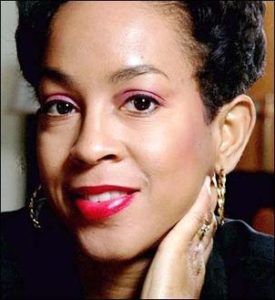
Bebe Moore Campbell
An American author, teacher, and mental health advocate, Bebe Moore Campbell dedicated much of her career toward advancing the mental health needs of Black and other marginalized communities, expanding education, and eliminating stigma. She founded NAMI-Urban Los Angeles (National Alliance on Mental Illness) to create a space where Black individuals and families could talk about mental health issues because she recognized that marginalized groups, particularly African Americans, “feel the stigma more keenly. In a race-conscious society, some don’t want to be perceived as having yet another deficit.”
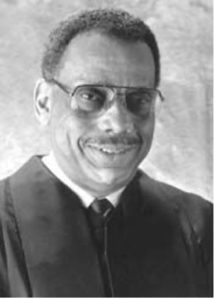
Herman George Canady, Ph.D.
A prominent clinical and social psychologist, Dr. Herman George Canady is famed for his study of how racial bias can affect the results of IQ testing, and his research led to the cultivation of adequate testing environments to reduce these biases and help Black students succeed. As part of the American Teachers Association, Dr. Canady also reached out to psychology professionals and implemented proposals to advance psychology education in Black institutions.
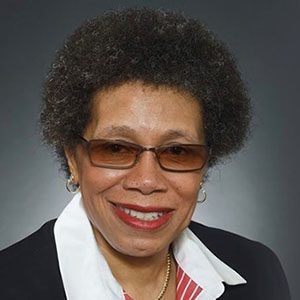
Beverly Greene, Ph.D.
Known as a pioneer of intersectional psychology, Dr. Beverly Greene wrote the famous article “When the Therapist is White and the Patient is Black: Considerations for Psychotherapy in the Feminist Heterosexual and Lesbian Communities.” Her work has illuminated the influence that heterosexism, sexism, and racism have on shaping a person’s identity, experiences with privilege and oppression, and mental health. From Dr. Greene’s teachings, her white colleagues began to learn more about the nuances they needed to consider when working with Black patients.

Jennifer Eberhardt, Ph.D
Dr. Jennifer Eberhardt has conducted extensive research on implicit bias, criminal justice, and the education system. She is an expert on the consequences of the psychological association between race and crime. Her work has resulted in evidence necessary to educate law enforcement professionals in implicit bias training, committed to improving policing and helping them to maintain trust with the communities they serve. A graduate of Harvard University and a recipient of the MacArthur “Genius Grant,” Dr. Eberhardt currently teaches psychology at Stanford University.
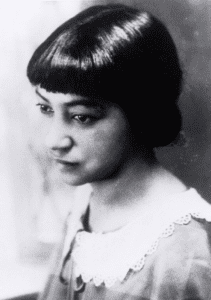
Inez Beverly Prosser, Ph.D.
Dr. Inez Beverly Prosser was the first Black woman to receive her doctorate degree in psychology. She studied the effects of racism and inequality on the development of Black children’s mental health, finding that Black students in segregated schools benefited more from affection, support, and a balanced curriculum, but suffered due to inequitable funding. Her work influenced the landmark case of Brown vs. Board of Education.
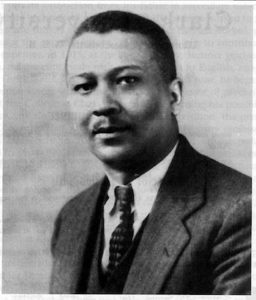
Francis Cecil Sumner, Ph.D.
Known as the “Father of Black Psychology,” Dr. Francis Cecil Sumner was the first Black man to earn his doctorate degree in psychology, his work focusing on inequality and racial justice within the education system. Teaching at Howard University, he established a psychology program and became head of the department, supporting the next generation of Black psychologists and mental health professionals.
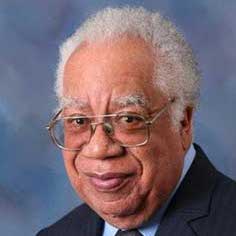
Joseph L. White, Ph.D.
Another recipient of the title “Father of Black Psychology,” Dr. Joseph L. White’s famous article, “Towards a Black Psychology,” was published in Ebony Magazine in 1970 and began a long movement in psychology to encourage more research and a better understanding of mental health approaches that cater to the Black experience, arguing that applying white psychology to Black people unfairly created the illusion of inferiority. Influencing the next generation of Black psychologists and mental health professionals, Dr. White helped establish the Association of Black Psychologists at San Francisco State University.
Though Black History Month feels like an appropriate time to celebrate these figures, along with other Black, historical leaders, it is critical to recognize and create a conversation around them throughout the whole year as well as work to dismantle the systems that perpetuate these disparities. Jefferson Center has had a great relationship with the Center for African American Health, whose mission it is to empower the Black community to make informed, whole-person health decisions to support African American individuals and families to live in healthy, vibrant, and sustainable communities. To learn more about the programs and resources they offer, visit the link below.
Resource Categories
- Kiara’s Note – Blog
- Mental Health Matters – Blog
- Voices of Hope – Blog
- Humans of Jefferson Center
- Addiction & Substance Use
- Anxiety
- Child Mental Health
- Crisis and Trauma
- Depression
- Exercise
- Just The Facts
- LGBTQIA+ & Pride
- Medicaid
- Men’s Mental Health
- Parenting
- Recovery
- Senior and Older Adult
- Socializing
- Stigma
- Stress
- Suicide Prevention
- Support & Advocacy
- Teen’s Mental Health
- Treatment Options
- Women’s Mental Health